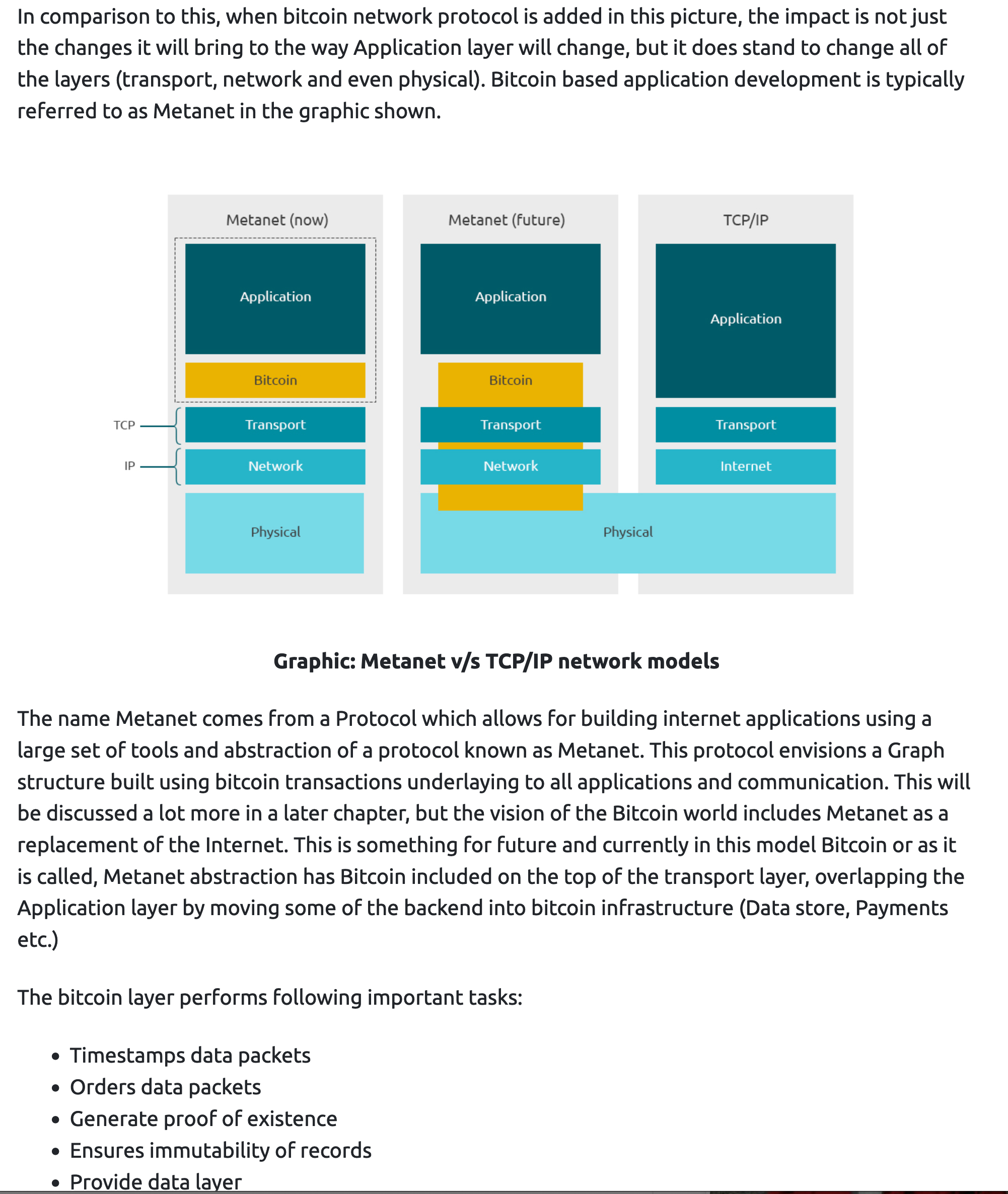|
Getting your Trinity Audio player ready...
|
Last week we outlined the potentials of Web 3.0 in having a monetization layer enabled for the internet. We also alluded to the possibilities of what IPv6 would bring to this new internet model as well. Well, at the risk of hyperbole—it will change everything.
Bigger than search
The implementation of Web3.0, or “Internet with built-in payments” as I like to call it, will be a change that will alter the base interaction model that millions of people have with their browsers and stand be a revolution as significant to the web as the introduction of search engines in the early 1990s. Recall that the yet unused HTTP Error code 402 signaled that at the time, the designers of HTTP protocol foresaw the development of future payment systems that would allow payments to be transmitted from the client to servers, or even peer-to-peer through the internet, without the need for an intermediary. Thus they saw a need for a web server to respond to a request from a client who has not yet paid for the request or has not embedded a payment along with the request to be notified that payment is required. Perhaps with some extra information on the amount and the precise payment methods. The vision was there, but the technology had yet to be developed.
Fast forward 20 years
Bitcoin is invented, and for the first time, the problem of PTP web payments is possible.
It required the invention of a web currency along with it, but it achieved what was hitherto impossible, payment can now be sent from a client to a server without any need for a third party API in the middle to authorize payments. Huzzah!
So what have we done with the invention in the last decade? Sadly, not much at all. But that can finally change now that the original Bitcoin protocol has been unleashed with BSV. It’s as if the sextant was invented, and we can finally safely navigate the open seas.
Let’s start looking at the previously unthinkable horizons that have been made attainable.
Bitcoin as a transport/network layer replacement
I had written about the use of Bitcoin as a network transport layer in the past1. If you haven’t read it, it would be worth refreshing your memory on the technicals. Recently, I found a more in-depth treatment of the topic in a presentation by Dr. Craig Wright, which outlines with OSI style diagrams how BSV can be used to make the internet better and remove the dependance of the web on Ads2.

Due to the fact that bitcoin transactions are signed, it solves the authentication problem.
No more man-in-the-middle attacks. No more DDoS. If a packet isn’t signed by the expected sender, then drop it. The sender can be the originator of the message or even the trusted intermediate routers. Once a trusted route has been established, it can be enforced such that no other packet can arrive unless it travels the same route. VPNs can be effectively established via the use of one-time-use secure channels of communication between sessions on hosts. The internet can be as private as you need while being as open as possible.
IPv6
The use of Bitcoin as a network transport protocol with the move to IPv6 and the possibilities quickly go exponential. Quick recap: IPv4 is the current most common type of Internet address standard, with a 32-bit address space. This allows for some ~4 billion addresses, which is already running low, given the number of devices and hosts that are connected these days. IPv6 introduces a 64-bit address space3, allowing for 1.844 x 1019 unique addresses. Plenty enough for every person and device that we can conceive of for the foreseeable future. (To be clear, it is more than 10 quintillion addresses) there are only 7 quintillion grains of sand on earth!
IPv6 enables us to uniquely assign every living person, animal, critter, and Internet device with a unique identifier with these many unique addresses. Not only this, we can start to use addresses for specific transactions and events (like purchasing a pair of jeans from Diesel). This means that we can begin to explore the use of point-to-point payments not only between people but between devices such as toll booth terminals, point-of-sale terminals, toll gates, and personal devices that we might be wearing.
Many of the Internet security concerns and challenges that we deal with today are solved simply by the fact that every unique agent or host on the Internet can be mapped to a direct entity, person, or device. Couple this with the capability of having each IP packet message signed by the device or the person sending it promises us an internet free from most forms of hacking or information stealing. Suppose every packet of information can be traced back to an originator which is registered to real natural persons or a registered device. In that case, there can be no such thing as MITM attacks, and every packets route through the network can be accounted for and traced. It’s like having Brinks deliver every one of your messages in their own secure armored truck, except that you don’t even have to trust Brinks. Ultimate privacy.
While authoritarians alarmists out there would be quick to criticize this system as being too overtly Orwellian, perhaps the truth is that if we allow transparency, the network will be able to self-police itself. Besides, corruption depends on hiding information and cannot exist in a transparent system. It may also lead to better-managed networks because any illicit use of the data, even if perpetuated by authorities or authoritarian regimes, can be ferreted out.
Finally, one of the banes of the Internet today is that although we have plenty of encryption technology available to us, very few people and applications actually make use of it by default. With the introduction of IPv6 along with Bitcoin as the transport layer, we will be able to employ default encrypted communications through the open Internet for the first time. The use of cryptographically generated addresses or CGA4 will allow for one-time use addresses for every transaction, essentially making every communication channel a one-time use route through the Internet. Couple this with encryption by default, and we stand to have the most private Internet that the world has ever seen. This is only possible in a world where addresses space is plentiful, and we have an authentication layer such as BSV able to cryptographically sign and verify messages.
Let’s take a standard use case between a customer buying a product and a merchant selling a product as an example.
The customer presents the product at a checkout counter and a QR code or barcode scan from their device. Using that information from the customer, the merchants computer then generates a one-time use IPv6 Internet address (bitcoin address). It then sends a message to that address with the product, payment instructions, and the necessary information to keep this information channel secure. The client knows this address since it was generated from the QR code information that originated from their device, so they go to that address, reads the Bitcoin transaction that was sent there, decrypts, and uses the contained information to construct a payment transaction to the merchant. This transaction is then signed and encrypted by the customer and sent back to the merchant via a direct channel, perhaps through another QR scan or near-field communications. There can be no interception of the communication given that the address is not known beforehand. It is one-time use in that it is deterministically generated with information particular about this transaction (such as the S/N of the product in the transaction) and as an extra benefit record of this transaction is now provably linkable back to this real-world purchase transaction.
Imagine the accounting systems of the future will no longer need to require humans to keep track of all the purchases on separate external systems. Imagine that the blockchain itself now would have all of the information necessary to file expenses, tax returns, etc. And all of this is protected with ultimate privacy because the only parties privy to the information (the parties to the transaction, in this case, the customer in the merchant) will have the necessary keys to decrypt the information. So only one of those two parties can report to a third-party such as a tax authority, about the transaction details. Privacy, through transparency.
This is the ultimate model of privacy on the web. Blockchain becomes the global record and accountable layer of the Internet.
I hope that you can see the power of integrating Bitcoin as a payment layer on top of the web and replacing a large part of the Internet layer itself, becoming the protocol to transport, route, and authenticate packets and data around the Internet. By employing IPv6 and integrating that with Bitcoin addresses and transactions, we enable not only the ability to have private communications, one time use communications, and 100% transparent communications in embedded in bitcoin transactions, but also enable the securing of the Internet such that many of the vulnerabilities that the Internet suffers from today would no longer be a concern.
Imagine the possibilities
Imagine websites that could employ differential payments depending on who the client is or where they are accessing it from. Imagine governments or charities who may choose to subsidize access to data on the Internet such that their citizens can have free access to websites that would typically charge money. Giving discounts to information allows for a free market for information, and in a competitive market, valuable information can stand out in a sea of disinformation. We can potentially cure the plague that social media has brought upon society, where truth is often drowned out by what can attract more eyeballs.
Compare this to the model where Google gets no money for running a search engine unless they are paid for by advertising companies wanting to put stuff in front of your eyes at every chance possible. It would be much nicer to cut out the middleman and pay search engines directly. It may even incentivize them to provide you with better search results. If you want to view ads, you should be paid for viewing them, another revenue model supported by Web3.0 and Bitcoin over the internet.
Imagine a world where in order for you to receive an email, the sender has to pay you one cent. This would be the end of spam. This would be the end of the advertisement-based Internet. This would be the end of the Internet, where your personal data is stolen. This would be the beginning of the Internet, where the more valuable data content you produce, the more revenue you earn.
This is the beginning of the true disintermediation of the Internet. In the past two decades, we experienced a transition into the age of information. This would be the beginning of the age of knowledge.
***
NOTES:
[1] See my previous article on “BSV as a secure transport protocol” published on CoinGeek
[2] And in the process, start to disassemble the empires of Facebook, Twitter, and other internet giants that have grown dependant on the Ads & Eyeballs model of the net.
[3] Along with other nice security features like encryption built in.
[4] https://en.wikipedia.org/wiki/Cryptographically_Generated_Address – CGA with RSA is already being deployed around the world. CGA++ can be leveraged with ECDSA keys that Bitcoin uses to enable Bitcoin keys to be the security layer of the internet.

 02-15-2026
02-15-2026 




